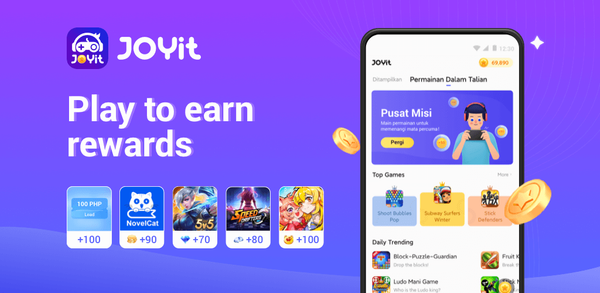Why Play-to-Earn Rewards Are Altering the Way You Play and Earn
The introduction of play-to-earn versions indicates a notable shift in the gaming landscape, welcoming players to discover not just the amusement value of video games however likewise their potential as income-generating systems. This paradigm supplies varied advantages, including possession ownership through blockchain technology, which basically alters player engagement and investment. As this design progresses, it presents a distinct set of obstacles that might affect its sustainability and appeal. Understanding these dynamics increases relevant questions about the future of gaming and the effects for both players and developers alike.
Development of Play-to-Earn Models
In current years, the gaming market has actually experienced a substantial transformation with the emergence of play-to-earn designs, fundamentally altering how gamers engage with digital settings. This innovative method permits players to gain substantial rewards through their in-game tasks, developing a change from traditional gaming standards where satisfaction and competition were the key inspirations.
Play-to-earn versions take advantage of blockchain modern technology and non-fungible symbols (NFTs) to provide gamers with possession of in-game possessions, which can be traded or cost real-world money. Because of this, players are incentivized to invest time and initiative into video games, cultivating a sense of firm and economic possibility. play to earn rewards. This shift has attracted a diverse player base, including those that may have previously seen pc gaming as a simply leisure task
A number of systems have emerged, showcasing successful executions of this version, such as Axie Infinity and Decentraland. These systems have not just produced significant profits yet additionally stimulated discussions around the sustainability and principles of such financial systems. As play-to-earn models proceed to progress, they promise to redefine the partnership between gamers, developers, and the more comprehensive electronic economy, leading the way for a new era in video gaming.
Benefits for Players
As players engage with play-to-earn models, they open a variety of benefits that expand past simple entertainment. Among the most considerable benefits is the possibility for economic incentives. Unlike standard video gaming, where players invest money and time without concrete returns, play-to-earn systems permit players to earn copyright or in-game properties that can be converted to real-world value. This financial motivation not only boosts interaction yet likewise promotes a feeling of possession over the pc gaming experience.
Additionally, play-to-earn models promote area building among players. Gamers frequently work together to achieve common goals, thus growing social links that improve the general experience. This feeling of area can bring about participating gameplay, where players share strategies and resources, boosting both personal and group accomplishments.
In addition, these designs can democratize accessibility to pc gaming by allowing players from diverse economic histories to benefit financially. By taking part in play-to-earn communities, people can gain abilities and expertise concerning blockchain modern technology, further widening their job chances in the expanding electronic economic situation. Ultimately, the benefits for players extend well beyond gameplay, influencing their social, financial, and educational landscapes favorably.
Obstacles in the Ecosystem
While the play-to-earn community offers considerable opportunities, it is not without its difficulties. One significant concern is the volatility of in-game currencies and properties, which can lead to uncertain revenues for players. Fluctuations in worth can prevent prospective gamers that seek secure earnings streams - play to earn rewards. Additionally, the complexities of blockchain innovation might perplex individuals unfamiliar with electronic currencies, developing barriers to access.
Another challenge is play to earn rewards the risk of scams and illegal systems that can afflict the environment. Players might run into deceptive platforms guaranteeing high incentives yet inevitably bring about economic loss. Ensuring trust fund and safety is crucial for the long-term stability of play-to-earn designs.
Moreover, the ecological influence of blockchain video gaming can not be overlooked. The power intake connected with mining and transaction handling raises honest questions about sustainability. Video game developers need to find an equilibrium between gratifying players and decreasing environmental impacts.
Lastly, the regulatory landscape is still progressing, presenting prospective dangers for programmers and gamers alike. Uncertain legal frameworks can impede advancement and limit the growth of play-to-earn communities. Resolving these difficulties is essential for realizing the full potential of this transformative pc gaming standard.
The Function of Blockchain Modern Technology
Blockchain innovation functions as the backbone of the play-to-earn ecosystem, addressing much of the difficulties formerly outlined. By using decentralized journals, blockchain guarantees openness and safety in deals. Players can with confidence make and trade in-game properties, understanding that ownership is verifiable and exempt to manipulation.

Tokenization of assets plays an important function, approving players real ownership of their in-game products, which can be purchased, marketed, or traded on numerous industries. This motivates a vibrant secondary market, where gamers can monetize their abilities and time invested in the video read this post here game.
Moreover, blockchain innovation allows interoperability between different video games and systems, allowing gamers to lug their properties throughout various communities. This adaptability not only boosts individual experience however also advertises an extra comprehensive video gaming environment, inevitably improving the landscape of pc gaming and earning.
Future Patterns in Pc Gaming
The video gaming sector is on the edge of a transformative advancement, driven by arising innovations and changing player expectations. As play-to-earn versions gain traction, players are progressively looking for immersive experiences that mix enjoyment with concrete benefits. This shift is prompting designers to innovate, concentrating on creating appealing gameplay that cultivates area and communication.
One noteworthy fad is the integration of virtual fact (VR) and augmented fact (AR), boosting the pc gaming experience by giving much deeper immersion and interactive environments. In addition, developments in expert system are enabling much more sophisticated non-player personalities (NPCs) and flexible gameplay, tailoring experiences to private gamer choices.

Conclusion
In verdict, the play-to-earn design is significantly changing the gaming landscape by enabling gamers to acquire real-world value from their in-game tasks. This standard change not only boosts player involvement and investment but additionally elevates obstacles that have to be dealt with to ensure sustainability within the ecological community. As blockchain technology remains to help with possession of digital properties, the future of gaming guarantees further development and possibilities for players across diverse histories.